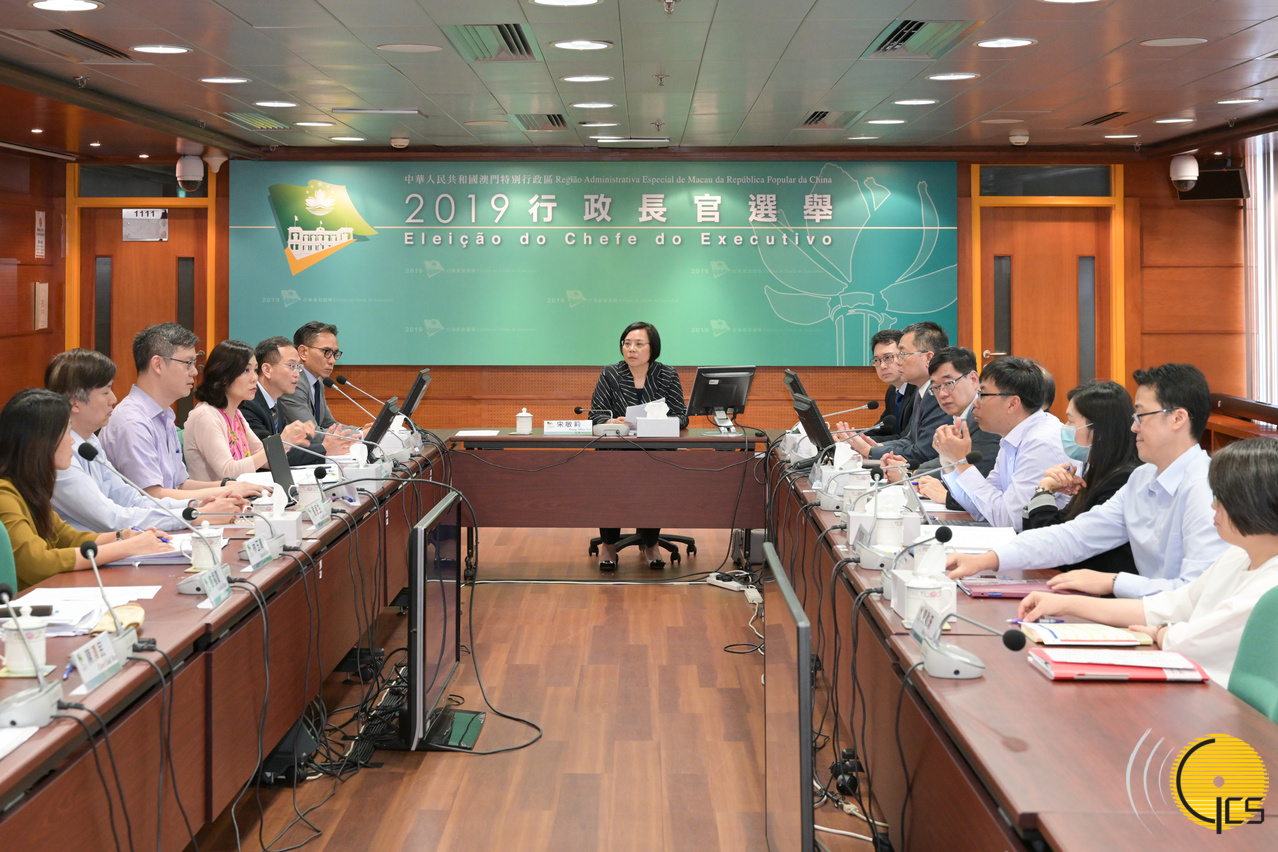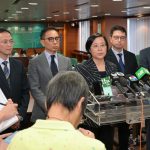 A meeting of the Electoral Affairs Commission for the Chief Executive Election.
A meeting of the Electoral Affairs Commission for the Chief Executive Election.
The Electoral Affairs Commission for the Chief Executive Election has today issued its first guideline, regarding the method to fill out the ballot paper to be used in the poll to choose members of the Chief Executive Election Committee. The date for the Chief Executive Election Committee polling is 16 June.
Speaking to reporters after a Commission meeting held today, the Commission’s President, Ms Song Man Lei, said specific requirements would be set for the design of ballot papers, and specific instructions provided on how to fill them, in order to enable the electronic counting of votes.
Voters should use special pens – available in the voting booths – to fill out the ballot papers. Voters should fill out the ballot papers by colouring the box(s) next to the candidate(s) of their choice, in order to make sure the intention of their vote was clear, Ms Song explained.
Ballots bearing other marks – such as a ‘check’, a ‘cross’, or a ‘circle’ – would be considered invalid, she added.
Ms Song said that a ballot also would be considered invalid if it were torn, or altered, or if it showed unauthorised marks, or if the voter wrote anything on the ballot paper. It would also be deemed invalid if the ballot paper had more boxes coloured than the respective number of seats allocated to the relevant sector.
The Commission’s first guideline is available in the official languages of Macao, Chinese and Portuguese. The guideline was affixed to the Commission’s notice board in the ground floor of the Public Administration Building and uploaded to the Chief Executive Election website (www.ece.gov.mo).
In addition, this afternoon at 6pm was the deadline for legal-person voters (i.e. registered associations with voting power for the Chief Executive Election Committee) to register for the right to have a role in the selection process regarding the formation of the Chief Executive Election Committee. The representative chosen by each legal-person voter will then be authorised to nominate candidates for the Chief Executive Election Committee.
A total of 633 legal-person voters had filled such registration request, representing 81.78 percent of the aggregate eligible legal-person voters.
Starting from tomorrow (24 April), the Public Administration and Civil Service Bureau will begin notifying the representatives of all registered legal-person voters to collect the official forms to nominate candidates for the Chief Executive Election Committee.
Reporters asked Ms Song about the potential replacement of Macao deputies to the National People’s Congress in the Chief Executive Election Committee, were any of the incumbent deputies to step down. She said those deputies were ex-officio members of the Chief Executive Election Committee. Ms Song added that any replacement could still join the Chief Executive Election Committee, as long as that person submitted the relevant information to the Commission within the period as required by the law.
According to the Chief Executive Election Law, the Chief Executive Election Committee is made of 400 members. However, the law did not prohibit election procedures to move ahead if fewer than 400 members formed the Chief Executive Election Committee, said Ms Song. The Chief Executive Election Committee will elect a new Chief Executive.
In response to questions from the media, Ms Song said the Chief Executive Election Law had specific provisions in case members of the Legislative Assembly ran as candidates in the Chief Executive election.
According to the law, if a member of the Assembly is running for the Chief Executive position, the person should suspend his or her term in the Assembly from the date of their final confirmation as a candidate and until the date of publication of the results of the election for the Chief Executive; in case a Legislative Assembly member is elected and appointed Chief Executive, that person would be deemed to have ceased his or her role as a member of the Assembly from the date he or she took office as Chief Executive.



